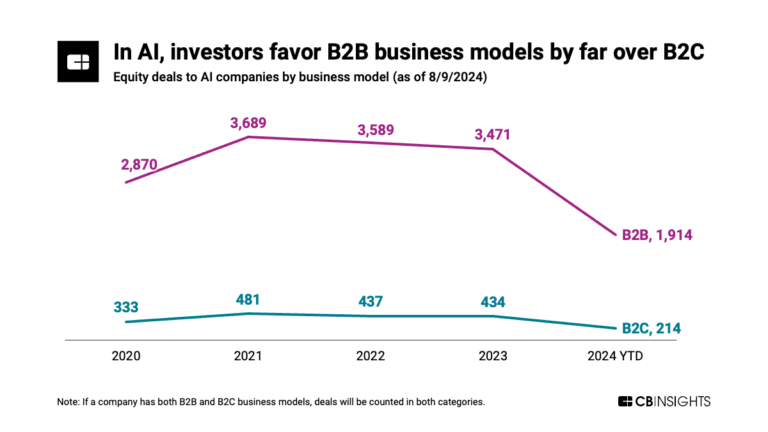
Lore Health
Founded Year
2023Stage
Series A | AliveTotal Raised
$80MLast Raised
$80M | 2 yrs agoMosaic Score The Mosaic Score is an algorithm that measures the overall financial health and market potential of private companies.
-49 points in the past 30 days
About Lore Health
Lore Health focuses on resilience and mental health in the workforce, operating in the health and wellness industry. The company provides an AI-powered chatbot that utilizes solution-focused brief therapy (SFBT) principles to assist users in enhancing individual resilience, along with a community platform and a rewards program for user engagement. Lore Health serves businesses aiming to improve employee wellness and manage healthcare costs through mental health initiatives. It was founded in 2023 and is based in San Diego, California.
Loading...
Loading...
Research containing Lore Health
Get data-driven expert analysis from the CB Insights Intelligence Unit.
CB Insights Intelligence Analysts have mentioned Lore Health in 1 CB Insights research brief, most recently on Aug 14, 2024.
Expert Collections containing Lore Health
Expert Collections are analyst-curated lists that highlight the companies you need to know in the most important technology spaces.
Lore Health is included in 1 Expert Collection, including Artificial Intelligence (AI).
Artificial Intelligence (AI)
20,894 items
Latest Lore Health News
Nov 13, 2025
The question now is how to best serve the millions who, freed from a lifetime of yo-yo dieting, are re-engaging with their health and looking for a helping hand. For many GLP-1 users, that success has reawakened a long-dormant sense that a healthier life is within reach . They’re primed and hopeful, even if some caution remains. Advertisement Technology could, and should, assist them. But instead of starting with what most people care about — living a deeper, more fulfilling life — wellness apps have framed the task as metrics optimization, fixated on boosting your VO2 max, nailing your sleep score, extending your streaks. As a result, platforms optimize the measurable and miss the main opportunity: sustained support for a fuller life. What we need are products designed for the many people whose expansive health goals are neither reflected nor well-served by a myopic obsession with metrics and dashboards. These health platforms should center agency and connection alongside exercise and recovery. They should translate small wins into confidence and next steps; foster real-world engagement with family, friends, community, and ideas; and let metrics serve the mission, not define it. Advertisement Related Story While exercise, sleep, and sensible eating are part of the picture, most people aren’t training for elite performance. They want to live better lives and pursue what is most meaningful to them. This often means more time with family and friends, space for hobbies, and participation in community — not relentlessly chasing metrics . Our deeper yearning for purpose and meaning, connection and participation has been largely neglected by health platforms drawn to what’s easiest to count rather than to what we actually value. The responsibility for living a fuller life is too important to outsource to a digital platform, but technology can support us far better than it has. It begins with humility: recognize that our ambitions exceed what performance metrics can capture, and resist the tendency, as Kate Crawford warns , to let “the affordances of the tools become the horizons of truth.” Health platforms can help people live more expansively by enabling real-world engagement with communities, nature, and — above all — each other. Backed by solid evidence, these objectives, difficult as they are to measure, should be first-class priorities for any serious longevity platform. Advertisement Agency grows when we see credible evidence that our choices make a difference in domains that matter to us. Platforms can help by making those inflections visible, turning small wins — like completing a ride or choosing a healthier entrée — into evidence that accumulates into confidence. The opportunity is to capture and compound the “ agentic dividend ” so it can be channeled into further positive action. A broader brief can transform fitness apps from a “dashboard of my inadequacies,” as Rachel Feintzeig poignantly put it , into a gateway to a fuller life. Imagine: After a workout or healthy choice, a quick “Bank your win” tap could 1) name the win (“Finished even when I wanted to quit,” “Chose the right effort today”), 2) give it meaning (“Energy for the afternoon,” “Kept a promise to myself”), and 3) set a tiny reinvestment (“Bike tomorrow,” “Text a friend to walk”). In parallel, apps can offer proven, low-friction techniques — such as cognitive reframing and active-constructive responding — to strengthen confidence and follow-through. An example of a startup pursuing this direction is Lore Health , which uses an artificial intelligence reflection partner grounded in solution-focused therapy principles, community support, and modest financial incentives to prompt self-reflection and build resilience. (Disclosure: I’m an adviser.) Related Story Health platforms should widen beyond measurement to enable what I’ve described as “soulful engagement” — experiences that we feel more than we tally. Encourage us to do things with others like family fun runs, neighborhood trail walks, local volunteer projects, and activities with fellow hobbyists, perhaps facilitated through partnerships with organizations like AllTrails and Points of Light , and startups like buildIRL . Help engage the mind through on-platform “learn and burn” sessions, and partnerships with curated content apps like Kanopy , CuriosityStream , and The Great Courses . After the activity, a light reflection — what did this make possible for you? (e.g., “reconnected with a friend,” “kept a promise to myself,” “learned something that energized me”) — can reinforce agency without gamifying it, helping people see how meaningful experiences build capacity for the next healthy choice. Advertisement Many pieces of a better platform already exist. Wearables like Oura and WHOOP can sense and summarize; Peloton can motivate at scale; Function Health is refining an early-detection model. Expand the scope of these platforms to embrace the broader human brief — connection, purpose, engagement, agency — and they can set the standard. If not, a new entrant with a more capacious vision will, or we’ll keep assembling a patchwork of narrower apps to meet particular goals and needs. This moment was earned by science. Let’s meet it with products that lift people up rather than offer a reductive quest for mechanical perfection. David A. Shaywitz is a lecturer in the Department of Biomedical Informatics at Harvard Medical School, an adjunct fellow at the American Enterprise Institute, and founder of KindWellHealth, an initiative focused on advancing health through the science of agency. Letter to the editor
Lore Health Frequently Asked Questions (FAQ)
When was Lore Health founded?
Lore Health was founded in 2023.
Where is Lore Health's headquarters?
Lore Health's headquarters is located at 101 W. Broadway, San Diego.
What is Lore Health's latest funding round?
Lore Health's latest funding round is Series A.
How much did Lore Health raise?
Lore Health raised a total of $80M.
Who are the investors of Lore Health?
Investors of Lore Health include Polaris Ventures.
Who are Lore Health's competitors?
Competitors of Lore Health include Journey and 6 more.
Loading...
Compare Lore Health to Competitors
LISL UP is a company focused on mental health and well-being, offering solutions in the corporate wellness sector. The company provides a mental health application designed to support employees and organizations in managing stress, emotions, confidence, burnout, and other workplace challenges. LISL UP's services include mental health pathways, access to resources, and coaching and training offerings. It was founded in 2021 and is based in Paris, France.

Portola operates within the mental wellness sector. It provides a virtual friend application that allows users to engage in conversations through conversational AI. It was founded in 2024 and is based in Beaverton, Oregon.

Noom operates as a health and wellness company focusing on behavior change to support weight loss and management. The company provides weight loss programs that include coaching, artificial intelligence (AI) support, and access to weight-loss medications for eligible individuals. Noom's platform aims to help users develop eating habits and achieve weight loss, with resources for those who may need medication. Noom was formerly known as WorkSmart Labs. It was founded in 2008 and is based in Princeton, New Jersey.

Wondr Health provides digital behavioral change programs. It focuses on metabolic, emotional, and physical health within the healthcare industry. The company offers solutions for weight management, chronic disease prevention, and stress relief, which aim to improve employee health and productivity while addressing healthcare costs. Wondr Health's services are available to employers, health plans, and benefits consultants, offering tools and programs that aim for health outcomes and return on investment. Wondr Health was formerly known as Naturally Slim. It was founded in 2007 and is based in Dallas, Texas.
Miri focuses on artificial intelligence (AI) powered wellness coaching within the health and wellness industry. It provides coaching experiences, feedback, product recommendations, and insights to enhance user engagement. It primarily serves the health and wellness sector, offering coaching solutions that work with existing digital platforms. It was founded in 2022 and is based in Oakland, California.

Emol operates in the healthcare technology sector and provides software as a medical device that delivers cognitive behavioral therapy to individuals with psychological conditions, including anxiety disorders, mood disorders, and attention deficit hyperactivity disorder (ADHD). The company's products enable virtual self-care and treatment for mental health issues. It was founded in 2019 and is based in Tokyo, Japan.
Loading...

